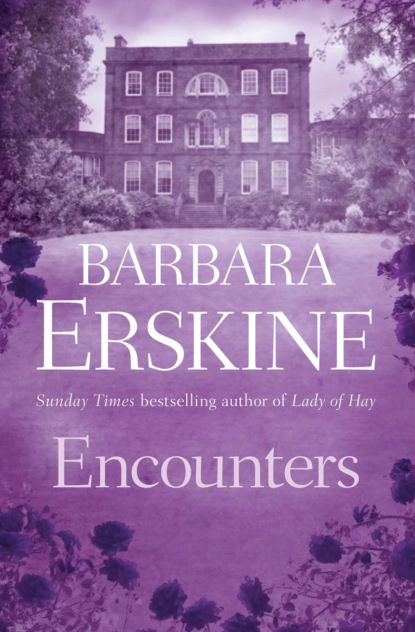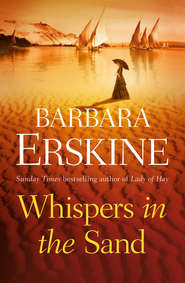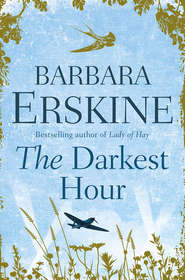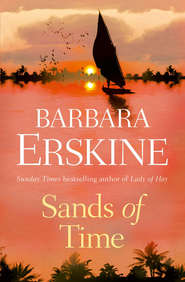По всем вопросам обращайтесь на: info@litportal.ru
(©) 2003-2024.
✖
Encounters
Автор
Год написания книги
2018
Настройки чтения
Размер шрифта
Высота строк
Поля
‘What flowers?’ The sweat stood out on my forehead suddenly. I had nearly been caught out and said, ‘I’m glad you like them’, or something equally fatuous.
‘Oh come now,’ her voice purred slightly. ‘You don’t have to pretend with me, David. Only you would send such a perfect bouquet. Your taste was always impeccable.
I stuttered slightly before regaining my cool. ‘I’m glad someone still sends you flowers, love. Not me though, I’m afraid. Didn’t they send a note with them or something?’
‘No; no note.’ She paused. ‘It was so sweet, too, to put a bottle of scent in, David. You shouldn’t have. Really. And Dior as well. You know, that’s been my favourite perfume since we first met all those years ago.’
My hand was shaking a little as it held the receiver. ‘Have you sniffed it to make sure?’ I tried to laugh. ‘You can’t always believe the label, you know.’
‘Oh indeed you can’t, David.’ She chuckled, and I could feel the small hairs on the back of my neck standing up at the sound. ‘I’m afraid I didn’t get the chance to smell your little gift, my dear. You see I’m afraid I dropped it. By mistake of course; out of the kitchen window actually. You’d never believe how concentrated they make perfume nowadays, David. It must have cost you a fortune. Do you know, it burned a hole right through the concrete. Imagine what it might have done to my poor nose.’
‘Imagine!’ I agreed sourly. The cunning female had seen through everything.
‘What made you think it was from me, my love?’ I asked casually. ‘You know I can’t afford to spend that kind of money on you. Not any more. You’ve milked me dry.’
She laughed, a beautiful tinkling sound, as though she were really happy. ‘You had a spot of bad luck there, David. You see one of the little boys you bribed was my son. He’d been spending the night with a friend in The Avenue. You never met him before, did you? It just happens that they’re both very keen on cars. You see you’re the only person we know, dear, with a Bentley Continental with your initials on the number plate. Really, you should have come by taxi!’
I reached for my beer and swallowed the lot down fast.
‘I don’t think I will admit to anything,’ I muttered. ‘It might spoil the whole romantic illusion.’
‘It would rather, dear.’ I could actually hear her smiling. ‘The trouble is, David,’ she went on. ‘I felt I had to tell my husband that you’ve started sending me flowers and I’m afraid he’s immensely angry. You see he’s a very jealous man. And he thinks you’re in love with me.’
‘More fool him,’ I couldn’t resist saying, but she went on as if I hadn’t spoken.
‘He really took it very badly, David. In fact he’s on his way over now. I thought, for old times’ sake I’d warn you,’ and she hung up on me without so much as saying goodbye.
I sat gazing at the empty beer can for a few minutes, wondering. She couldn’t be serious. Could she?
I don’t quite know how he got past my secretary, but he arrived quite unannounced. He stood in front of my desk for a long minute, then he smiled.
‘No other man woos my wife with flowers,’ he said very solemnly.
‘Dead right,’ I was about to say, ‘they don’t,’ but he forestalled me. He took a revolver out of his pocket and hooked his finger over the trigger. He never gave me any time to explain.
But I won in the end: now I haunt them both.
‘There was a time when I was almost happy …’ (#ulink_b9553891-4dd8-5f63-8946-cdd156bed9f1)
There was a brittle splintering as her foot slipped on the ridges of the cart track and the ice shivered delicately across the ruts in a labyrinth of crystal slivers. She hadn’t been concentrating; she had been gazing into the distance where on either side of her the fields stretched like dull brown hessian towards the hedges. In the summer, when she had been here before, they had been a ripe, rich gold; somehow she had not expected them to have changed so much.
With a little shiver Jacie dug her hands deeper into her pockets and walked doggedly on. She had to get there before the mist-shrouded sun disappeared behind the hills and left her in the cold darkness. She almost wished now that she hadn’t come at all. Perhaps it was a mistake to come back – to try and recapture those memories which haunted her. She hesitated for the first time, but already in front of her she could see the dark outline of the ruined arches rising starkly from the earth amongst the bare winter trees and irresistibly she was drawn on.
She stood for a while in the shadows, feeling the wind teasing her hair from the scarf around her head, gazing down at the patch of rimed grass where her feet and Brian’s had stood, so close together. It had been like another lifetime then, in the summer, that time when she was almost happy.
She shrugged suddenly, shaking the loosened hair out of her eyes and pulled her collar up closer. The cool sun had gone now and night was coming faster than she had expected, moaning softly in the wind amongst the crumbling stones, darkening the fields. Suddenly, irrationally, she was afraid. She glanced over her shoulder, pressing back against the green damp of the stones, smelling their dankness, listening as she had that last time to the story they seemed to cry out of sorrow and pain. Her heart was beating fast somewhere high in the back of her throat and she pressed herself into the corner of the walls which had once formed the nuns’ chapter house. It was then, glancing sideways, forcing herself to be calm, that she saw the web.
The spider had thrown its net across the corner between the rough stones, a hexagonal of perfect diamanté, glittering with frost even in the near dark. Jacie raised her hand in wonder and then swallowing a sob of relief held back, remembering the summer. Was it the same determined little creature which had returned and made good the wreck of its web which her clumsy fingers had torn into ashy fragments that last day? The sticky silken threads had been caught up and retied. She gazed at it until the dusk faded into darkness and she could no longer see even the frosty outlines of the shape. Would it be the same for her? Could the wreck of her own happiness be made good too? Would he come back to her and rescue her from herself again? Pressing her hands deep in her pockets she gave the dark corner where the web hung one last look, then she turned and slipping and stumbling in the dark she began to run back down the track towards the farm.
Ever since her childhood Jacie had felt different from other people. Partly, she now accepted, it was the way she was; partly it had been her mother’s fault for not understanding.
‘Jacie Stacey
Her silly vest is lacy!’ the children at school had sung, dancing around her as they changed for gym and the teacher had sent a note home to her mother: ‘If Jane could wear something a little less elaborate … broderie anglaise is not really suitable for school wear …’
Jacie had looked up fearfully as her mother tore open the envelope, waiting for the explosion she was sure would come; somehow feeling herself to blame for the unacceptability of the trimming on her liberty bodice. There was an explosion, but not of anger; it was of laughter. Her pretty unpredictable mother had hugged her. ‘Oh darling, I must buy you woolly vests and make you a conformist,’ she had gurgled delightedly and Jacie had breathed a sigh of relief. She wanted nothing more than to conform in a woolly vest. It embarrassed her when her mother tried to make her different; it embarrassed her when her mother laughed and talked with the other mothers at collecting time and pulled her pigtails, saying, ‘this one is mine’. All she wanted was to disappear and be wholly invisible. The more her mother drew attention to her and made her pretty – and she was pretty, there was no getting away from that – the more she hated it. If a teacher looked at her she trembled.
Later it had been the same. As she grew up she had hidden away from the other girls her own age, taking refuge in drawing which she found was the only way to express her feelings. She would hide in her bedroom, ignoring her mother’s pleas to come out, endlessly sketching the roof tops and the trees which she could see from her window and putting into the strokes of her pencil all the pent-up emotion which she felt but did not understand.
‘You’ll grow out of it, darling. It’s a phase. I was shy at your age,’ her mother reassured her time and again, but Jacie could see the puzzled hurt in her mother’s eyes and knew in her heart that her mother had never felt the way she did. She had never known the agony of not belonging and, worse, of not wanting to belong in spite of the ache of rejection, as first schoolgirls and then college contemporaries formed close circles which seemed to exclude her.
‘What’s wrong with me?’ she asked in anguish, talking in the end in desperation to the same apple tree in the garden which she had addressed so often as a child. She received no reply.
Once she began working it was perhaps a little better. She gained confidence because she was good at her job. She was a designer; sometimes freelance, sometimes working for long periods for one firm and always, when she moved on, they were sorry to lose her. She was deft, competent and quietly efficient and managed to blend mutely with the grey carpet and beige wall, only occasionally being subjected to agonizing blush-making notice. Once or twice she went out with the men she met in these offices, but her terror and the rigid formality of her shoulders held them at bay. They never asked her a second time although long ago she had realized, catching sight of herself unexpectedly in a mirror, that she had inherited her mother’s beauty.
There was one man she had liked a little; the partner in charge of her department at the last job but one. He was a rugged solidly built man with strangely flecked Irish eyes and enough shy charm to lull her into allowing a lunch hour break to drift on into the early afternoon, and they had gone for a walk in the park. They had stood side by side at the edge of the lake, watching the grey froth which lapped at the tarmac path beneath their feet.
‘I like it here; it’s so quiet.’ She glanced up at him shyly with the half smile he found so intriguing glimpsed over the rim of her drawing board. Then avoiding his eyes she looked back towards the ducks, glossy in the plumage of early spring.
‘I like quiet places too.’ His voice took on a deeper note than usual as he moved little by little until, almost imperceptibly their elbows brushed. He had sensed her isolation; he did not want to hurry her.
‘You can still hear the roar of traffic though,’ he went on almost in a whisper. ‘I’d like to show you somewhere really quiet. Why don’t we take a drive down to the country at the weekend? Perhaps have lunch at a pub somewhere?’ He too had been staring hard at the ducks as he spoke but now he turned to look at her. He found she was looking straight at him, her eyes wide, the pupils pin points in the light of the sun. Her face had drained of colour.
‘It’s awfully nice of you, but I couldn’t. I couldn’t possibly.’
‘Why not?’
She shook her head emphatically. ‘You hardly know me. You’d be bored. I’m not …’ She was floundering unhappily. ‘I couldn’t. I’m sorry. I’m going to see my mother.’
She had drawn away, every muscle tense suddenly, resenting and fearing the brush of his elbow, the intimacy of his glance.
‘Hey, I didn’t mean –’ he found to his embarrassment that he was blushing too, disconcerted by her reaction. But already she was walking back across the grass, her shoulders squared beneath her coat.
‘We’re late for work,’ she called behind her with a tight apologetic smile and she almost ran in the direction of the park gates.
Later in the week she half hoped, half feared that he might ask again, but although his smile was just as friendly and his good morning relaxed and warm, he saw to it that they never found themselves alone together again.
And so the years passed. Time brought in the end a kind of serenity. Her shyness crossed the invisible road which turns it to reserve and she ceased to mind when her rejection of people led inevitably to their rejection of her. Or if she minded, she buried the hurt so deep that even she no longer noticed. Only her mother reminded her, and so now she seldom saw her mother.
Sketching, still her only passion, gave her the excuse for long lonely holidays in lonely places. There was one farmhouse in particular on a moor among the hills where she found solace and quiet dour friendship from the farmer and his wife. Once or twice a year, sometimes for long periods when she had saved enough, she made her way there, laden with sketchbooks and easel, to sit in the wiry heather with the wind teasing her hair and no companions save the sudden bulge-eyed hare and the distant wheeling, wheedling buzzards. It was a contented, restful time, for while she was there she forgot her inadequacies and her loneliness and found refuge and total confidence in her art and with the quiet couple with whom she stayed.
She had been going there for three years before she found the abbey. So often her footsteps retraced automatically the same paths through the heather and close-cropped tangled bilberries, taking her to landmarks of her own invention, that she rarely explored more distant valleys and dips in the rolling moors. There the fields, bright with ripening corn, encroached on the wildness of the landscape, reaching out to tame it with the richness of the fertile farms and thick growing woodlands. The ruins were hidden in a wooded valley of ancient trees, guarded by nettles and fierce sprays of thorn and bramble at the end of a cart track through the fields, and there she first met Brian.
She stumbled on him, almost literally, not seeing him until it was too late to turn and flee as he lay sprawled behind a low wall, field glasses pressed to his eyes, focused on a high fir growing out of the very stones themselves, or so it seemed. He turned furiously on her, mouthing silent curses and pulled her unceremoniously down beside him before turning once more to his watching. He never looked at her.
She lay trembling, her face pressed into the sweet grass, not daring to move although a nettle brushed her bare leg. Only when the great golden and russet bird which he had been watching lazily raised its wings and flew unperturbed away through the wood did he sit up and smile at her, obviously suddenly conscious of the formalities.
‘Sorry about that,’ he said, his deep voice softened slightly by the gentle lilt of the hills. ‘She’s nearly hatching her eggs you see and it would be a terrible crime if she were to desert the nest now. I’ve been watching her since she first laid.’ He had a gentle quiet about him that reassured the scaredness within Jacie and allowed her to pull herself up to her knees, straightening her jacket and pushing the hair and grass and bracken tips from her eyes. The movement angered the nettle and she flinched as it rasped her skin.











